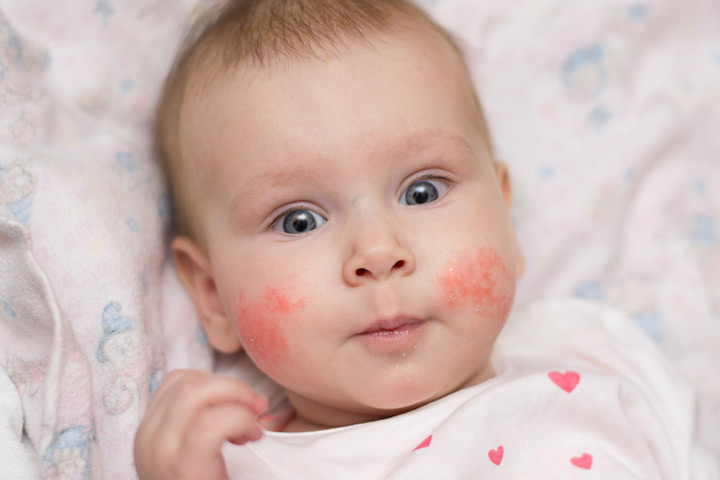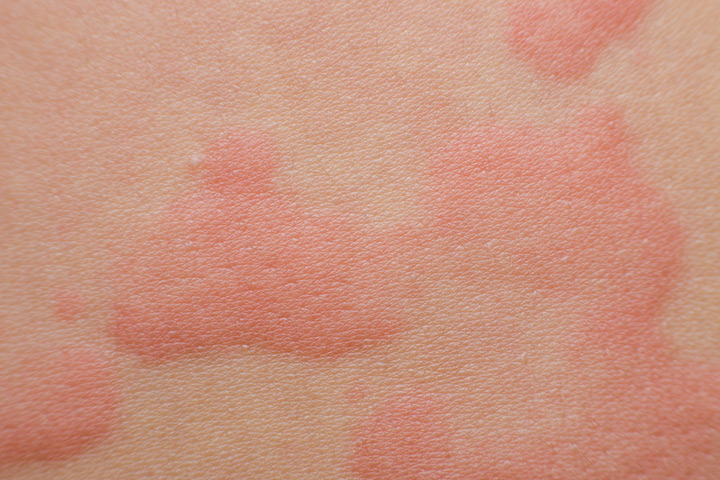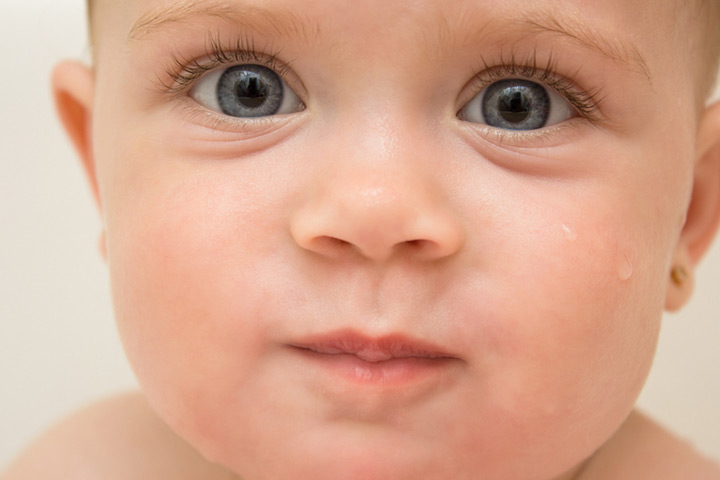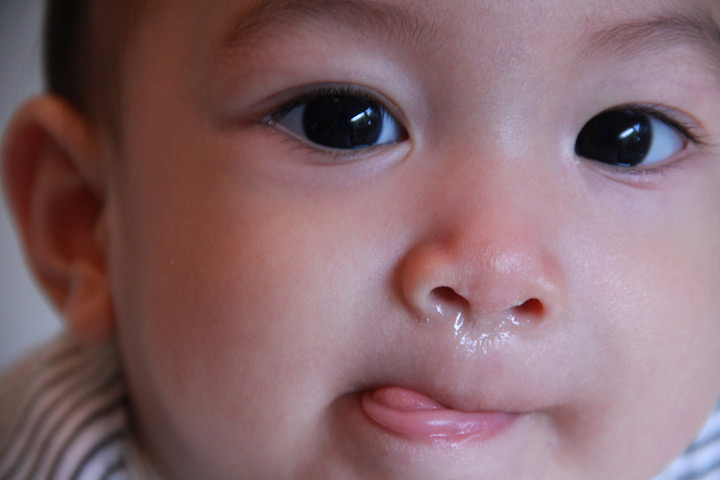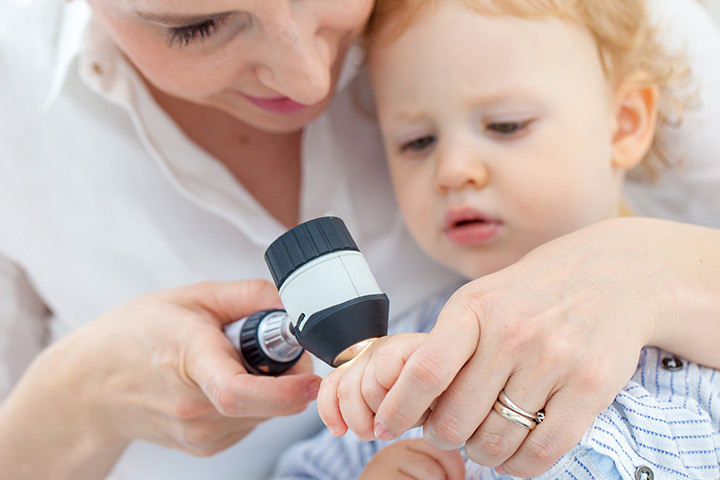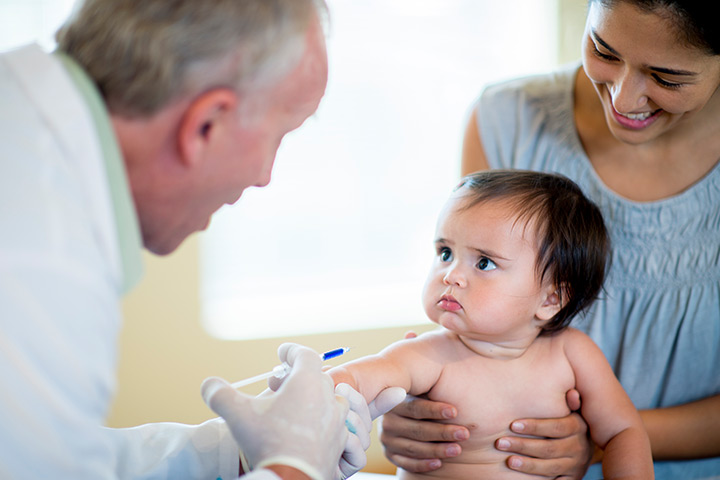
Image: Shutterstock
Once a baby comes in your life, everything that you do focuses on the well-being of your little angel. You immediately become alert and try to prevent each and every health hazard. In this scenario, one of the worst nightmares for parents is when their children get inflicted with an unknown allergy. But how will we know what babies are allergic to? The answer is by getting our babies tested for possible allergies beforehand.
Signs And Symptoms Of Allergies
Some of the common signs of an allergy are:
Eczema – Although there are different types of eczema, the most common in babies is atopic eczema. It is characterized by tiny red bumps and may cause scaling and dryness of the skin.
Papular Urticaria: It is an immediate reaction to insect bites like mosquitoes, bed bugs, mites, etc. They are usually tiny clusters of red bumps, can be fluid-filled, and sometimes might last from a few days to weeks.
Hives: Sometimes the body releases a chemical called histamine in reaction to an allergic substance. This results in hives. Hives are raised, itchy patches that appear anywhere on the skin in clusters (1).
Watery Eyes: Your baby can have excessively watery eyes due to an allergy.
Runny Nose: This is another common sign of an allergy. Your baby will have a continuous runny nose if he/she has an allergy to something.
Sneezing: There are times when something in the air, like pollen or dust, can trigger incessant sneezing in your baby.
Apart from the ones listed above, an allergy can also cause coughing and upset stomach (2). While most may not be life-threatening, some might prove fatal if not tended to in time. Like anaphylaxis, which is a severe reaction to an allergy. Although rare, it can occur suddenly when it does, worsen rapidly and prove deadly. Food allergies, insect bites, latex, and medication allergies are all often associated with anaphylaxis (3).
How To Get Your Baby Tested For Allergy
Now that you know the importance of an allergy test, let us tell you that getting your baby tested for one is not going to be an easy task. First of all, the atmosphere at the hospital, where each baby comes out of the doctor’s room crying, will easily scare your baby. Secondly, allergy tests do require a few needle-pricks and blood draw, which are a bit painful for the baby. So, here’s what you can do:
- To begin with, make sure you take certain things with you to keep your baby engaged at the hospital. Things like your baby’s toys, a bottle of milk (either breast milk or formula), and a stroller (if your hospital has enough space).
- Make sure you remove your baby from the scene if you see a kid bawling as he/she comes out of the testing lab. You can also try and distract your baby until your turn comes.
- Always keep your baby’s favorite snack with you (if your baby is on solids) – like a cracker or chocolate – as a reward to soothe your baby after the test has been done.
- Hold your baby’s legs and arms gently yet firmly at the time of getting pricked or injected. Babies tend to flail their arms and legs and might injure themselves if they push the needle.
Allergy tests are done in the following ways:
Skin Tests: The most common type of allergy skin tests are intradermal skin test and patch test. In an intradermal skin test, a diluted form of allergen is administered through a prick on the baby’s top layer of skin or injected by using a very thin needle. This test is, however, rarely done for infants below 6 months and for highly sensitive patients as it can also result in anaphylaxis.
In a patch test, the baby is applied a patch to be kept in place and dry for 48 hours. After that, it is monitored periodically for reactions.
Blood Tests (In Vitro): In these tests, blood is usually drawn in a syringe through a fine needle. It might feel like a pin-prick but may trigger a baby to cry nevertheless.
Diet Elimination Tests: In this method, the allergist might suggest eliminating suspect food allergens from your baby’s diet. Thereafter, the allergist will supervise your baby for at least a week before drawing conclusive results (4).
Getting an allergy test done is an important step toward safeguarding your child from potentially life-threatening allergies. So, let not a few hours of your baby’s crying discourage you from taking the test.

